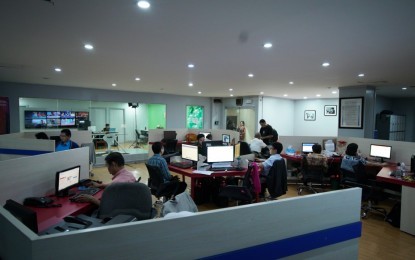
MANILA – Civil Service Commission (CSC) Commissioner Aileen Lizada clarified Monday that hazard pay will only be given to government workers required to physically come to work amid the coronavirus disease 2019 (Covid-19) pandemic.
Lizada said while government employees working from home are not entitled to hazard pay, she expressed assurance that the salary of all government workers will continue during the enhanced community quarantine (ECQ) and the general community quarantine (GCQ) brought about by the health crisis.
“Nagpapasalamat tayo na nasa gobyerno tayo at this stage po kasi tuluy-tuloy iyong ating suweldo. Huwag na ho kayong umasa ng overtime pay sa bahay ninyo or hazard pay sa bahay ninyo kasi wala namang hazard sa inyong bahay, you’re in your home (Let us be thankful that we are in the government service at this time because our salaries will continue. Let us no longer ask for overtime or hazard pay as we are working in our own homes),” Lizada said in a Laging Handa Public Briefing aired over state-run PTV4.
Lizada said the Department of Budget and Management (DBM) already issued its guidelines on compensations.
Lizada added that front-liners are entitled to risk allowance and hazard pay, while those working under skeletal workforce may not report for work on holidays, but if required by the head of the agency, compensatory time-off will be given to them.
Employees under job order (JO) and contract of service (COS) who are in the front-line services are also entitled to receive hazard pay and the special risk allowance.
Multiple work arrangements
The CSC issued its Memorandum Circular No. 10 (MC 10) on the interim guidelines for alternative work arrangements for government offices available during the ECQ and the GCQ due to the pandemic, promulgated on Friday (May 8), but will take effect retroactively on March 16, the date of President Rodrigo Duterte’s declaration placing the country under a state of calamity.
During the briefing, Lizada said multiple work arrangements are available to the head of agencies.
These are work from home, skeletal workforce, four-day compressed workweek, staggered working hours, and alternative work arrangements.
A combination of these arrangements may also be implemented, depending on the needs of the agency.
"The five alternative work arrangements, puwede ho nating i-combine. Ito ho iyong maganda dito kasi puwedeng i-combine para ho hindi mahirapan din iyong ating transacting public at iyong government officials and employees po. We have a leeway whether it is ECQ, GCQ, MCQ you now have five alternative working arrangements (The five alternative work arrangements may be combined for the advantage of the public as well as the government officials and employees)," she said.
She said senior citizens and those with health risks such as immunodeficiency, comorbidities, and pregnant women should be placed under work-from-home arrangement.
Exceptions include those working in healthcare facilities, emergency services, law enforcement, and other essential services, but the four-day workweek schedule may be applicable under the Joint Memorandum Circular No. 1, series of 2020.
Occupational safety, health standards
Lizada said aside from the MC 10, a joint memorandum circular between the CSC, Department of Labor and Employment (DOLE) and the Department of Health (DOH) on the Occupational Safety and Health (OSH) Standards for the Public Sector was signed last May 4 and will take effect on May 22.
CSC-DOH-DOLE Joint Memorandum Circular No. 1, s. 2020 aims to protect government workers from the dangers of injury, sickness, or death and to prevent loss or damage of properties through the adoption of safe and healthy working conditions.
Under the guidelines, government agencies will be required to establish their own occupational safety and health (OSH) program, create a safety and health committee, and appoint a safety health officer to oversee the overall implementation of the standards.
To further protect their employees during these times, agencies are required to sanitize their workplaces and provide personal protective equipment to their employees, for free.
Lizada said guidelines on the implementation of the JMC will soon be released.
"Maglalabas po ng guidelines ang mga different agencies, maglalabas ho ang CSC ng guidelines how to implement this, maglalabas din po ang DOH po para doon sa kung ano ang medical services. Mag-e-establish sila ng system kung anong medical services ang puwedeng ibigay sa mga empleyado at ang DOLE po ay magpo-provide ng relevant occupational safety and health standard for the government sector (Guidelines will be released by the different government agencies. CSC will release a guideline on the implementation, DOH will release their guidelines for those in medical services and establish a system on which medical services may be given to employees while the DOLE will provide for the relevant occupational and health safety standard for the government sector),” she added. (PNA)
